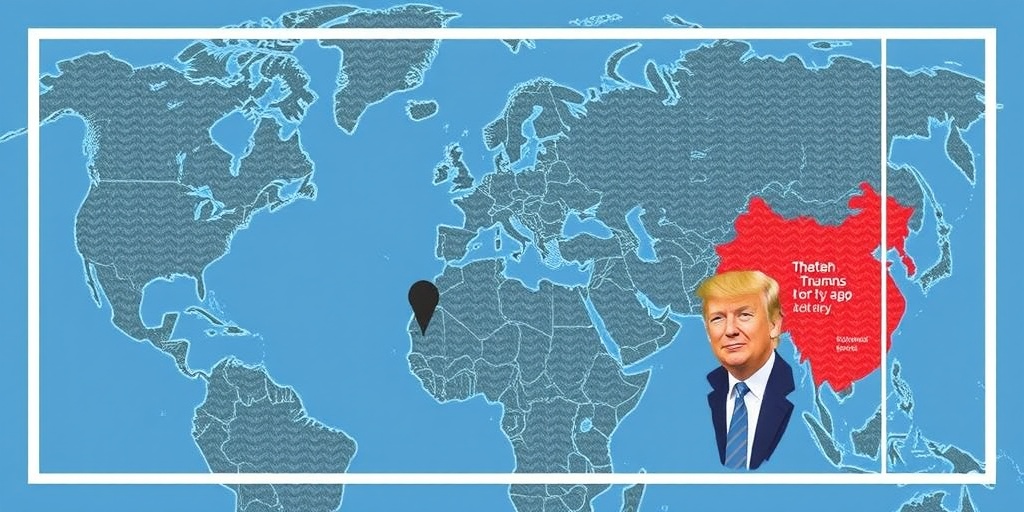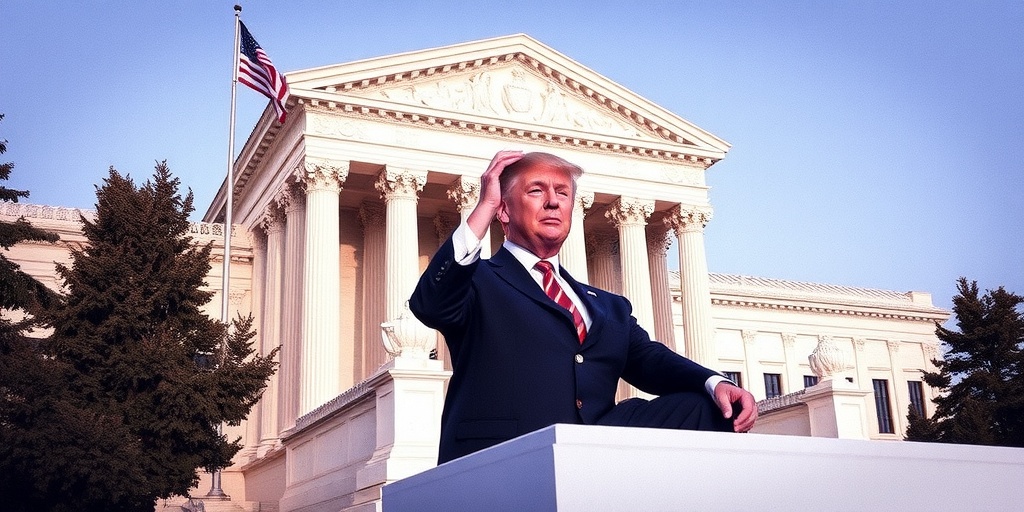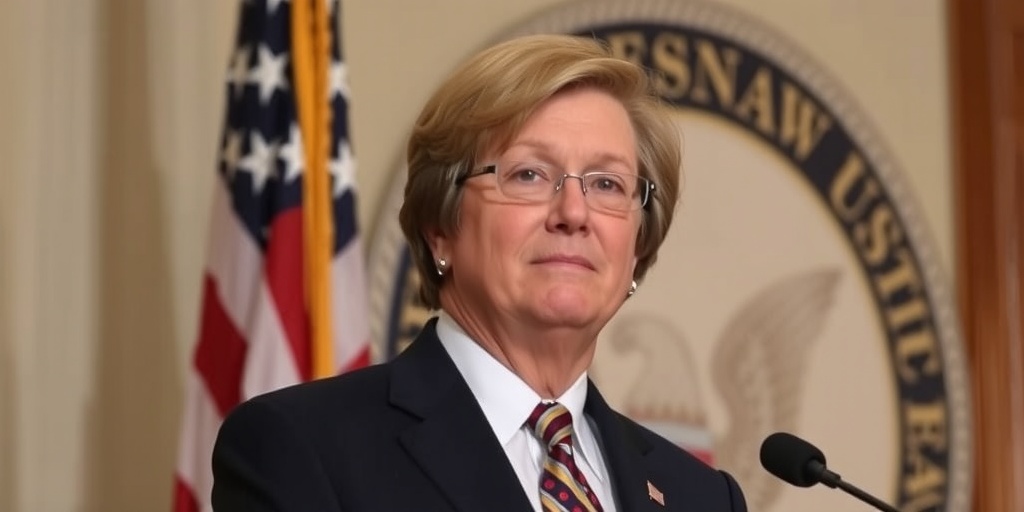Now Reading: Trump’s Global Impact: 50 Days of Power, Money, and Territory
-
01
Trump’s Global Impact: 50 Days of Power, Money, and Territory
Trump’s Global Impact: 50 Days of Power, Money, and Territory

In a dramatic shift in American foreign policy, President Donald Trump has made significant changes that have strained the long-standing international alliances established over the last eight decades. This rapid transformation has occurred within just 50 days of his presidency, raising concerns about the future of U.S. leadership on the global stage.
One of the most startling moves made by Trump was his decision to alter the U.S. stance in the ongoing Ukraine conflict. Abandoning support for Ukraine, he has emphasized a more isolationist approach by aligning U.S. actions with countries like Russia and North Korea. This approach culminated in a U.N. vote where the U.S. sided against its traditional allies, consciously choosing to reject a resolution that condemned Russia’s aggression. This choice has sent ripples throughout the international community, as Trump’s rhetoric concerning various territories—including remarks about the Panama Canal, Greenland, Gaza, and even Canada—have been seen as aggressive and predatory.
The consequences of this shift have affected U.S.-Ukraine relations profoundly. Trump effectively halted military assistance to Ukraine, including crucial satellite imagery, following a contentious meeting with Ukrainian President Volodymyr Zelensky. His reluctance to guarantee U.S. support for Ukraine has raised alarms about the long-term viability of Ukraine’s defense against Russian incursions.
In tandem with his foreign policy maneuvers, Trump has implemented tariffs on American allies, further damaging trust within NATO. These actions have prompted discussions in European capitals about enhancing their military capabilities independently, with France considering expanding its nuclear deterrent and Poland contemplating the development of its own nuclear arsenal. This growing sense of insecurity reflects a profound unease among U.S. allies regarding America’s reliability as a defender, a role that has been foundational to the NATO alliance.
The broader implications of Trump’s actions have raised questions about the potential dismantling of the post-World War II international order established under previous administrations, stretching back to President Harry Truman. Prominent political scientists, including Joseph S. Nye Jr., have noted that Trump’s approach showcases an obsession with so-called “free riders” that distracts from the United States’ traditional role as a leader in global affairs.
As Trump continues to reshape U.S. foreign policy, critics are wary of his strategic vision—or lack thereof. Trump appears more comfortable operating in a framework reminiscent of 19th-century power politics, negotiating directly with major powers like Russia and China while sidelining smaller nations. His recent negotiations, centered around a temporary ceasefire in Ukraine, suggest a preference for expedience over long-term stability.
This transition has been viewed by some as a revolution in American foreign policy, with implications that may have enduring effects on international relations. As noted by R. Nicholas Burns, former ambassador and national security expert, the United States’ actions under Trump signify a profound breach of trust with its allies that may be challenging to mend.
Trump’s early days in office have also featured calls for controlling strategic territories like Greenland—citing its mineral wealth and geopolitical significance—while insisting Canada accept a unique status. This aggressive rhetoric was evident when Trump was reluctant to rule out using military force to achieve U.S. objectives.
During his inauguration speech, Trump reiterated claims that America would no longer allow its generosity and security to be exploited by allies. His declaration of pursuing “manifest destiny” points to a stark historical precedent, drawing parallels with expansionist policies of the late 19th century that often led to significant conflicts.
As the situation continues to unfold, experts are recognizing a marked shift in U.S.-Ukrainian dynamics. Trump’s administration has leaned towards a strategy that prioritizes temporary resolutions and normalizing relations with Russia over supporting Ukraine’s sovereignty. This pivot from traditional alliances underscores a significant departure from established U.S. foreign policy norms.
While many believed Trump’s second term would reflect a continuation of his previous policies, the reality has proven to be quite different. He seems to lack a cohesive national security strategy, prioritizing personal relationships over structured policy frameworks. Observers note that the consequential changes initiated by Trump and his administration may fundamentally alter the global political landscape moving forward.
Looking ahead, the implications of Trump’s foreign policy choices could lead to a reconfiguration of international power dynamics. Scholars and policymakers express concern that the traditional American-led order may be replaced by a new world arrangement where major powers dictate terms and lesser nations are left to navigate their fates. The emergence of such a landscape could align with Russian ambitions, bringing about an unsettling reality for those who value collaborative international governance.
Stay Informed With the Latest & Most Important News
Previous Post
Next Post
-
 01New technology breakthrough has everyone talking right now
01New technology breakthrough has everyone talking right now -
 02Unbelievable life hack everyone needs to try today
02Unbelievable life hack everyone needs to try today -
 03Fascinating discovery found buried deep beneath the ocean
03Fascinating discovery found buried deep beneath the ocean -
 04Man invents genius device that solves everyday problems
04Man invents genius device that solves everyday problems -
 05Shocking discovery that changes what we know forever
05Shocking discovery that changes what we know forever -
 06Internet goes wild over celebrity’s unexpected fashion choice
06Internet goes wild over celebrity’s unexpected fashion choice -
 07Rare animal sighting stuns scientists and wildlife lovers
07Rare animal sighting stuns scientists and wildlife lovers





















